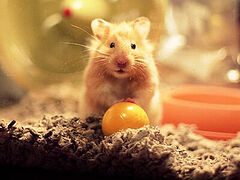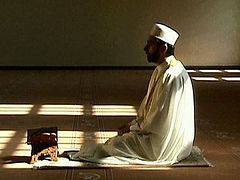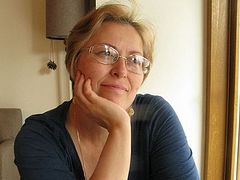A routine course of life is occasionally interrupted by some mysterious events. The believers call such events a miracle, and non-believers a coincidence. You are free to deduce it as you like.
A clash of civilizations
This story took place in one of the Central Asian countries, a former Soviet republic. Some of us who still clearly remember the history of events will easily understand what country we are talking about, even though the fates of many peoples and countries were alike at the time: unrest, hardship, and sorrow that flooded our lives after the break-up of our great country and superpower.
Following the parade of sovereignties announced by the former brotherly republics, they witnessed the mass exodus of the Russian-speaking population and, after a few years, it resulted in the complete abandonment of the use of the Russian language—so few native Russian speakers remained there. I will refrain here from describing the trials those few Russians who chose to stay had to endure, but there were, undoubtedly, examples of honorable behavior and kindness on the part of our former compatriots in the Soviet Union who are now simply called our neighbors.
Many of us still remember: The 1980s and the 1990s became known as times of mass awakening of not only the national, but also the religious identity of peoples across the former Soviet Union. In Central Asia, as a part of the traditional Islamic world, the religious sentiment and beliefs of the native population took on enormous significance at the time. As for the Islamic world as a whole, it never really cared for Christians—they were tolerated at best.
As for the Islamic world as a whole, it never really cared for Christians—they were simply tolerated at best
Then, there was a war that took the lives of hundreds of thousands of people of various nationalities. It divided the locals into two factions that in turn were broken up into many clans that had hard time putting up with one another. But, like any other war, it inevitably came to end, replaced by a fragile peace and deep poverty.
We lived in a small town not far from a regional capital city. Our town was quite remarkable as it was built in the middle of barren steppe in the 1940s in a race to create the first atomic bomb, but later became one of the centers of the nuclear industry on the vast expanses of our country.
Once the Russians had left the country the town went into decline, because anyone who was able had left to return to their native regions. But the town was still standing, inhabited by the elderly and the lonely, the poor and the desolate. The vacated homes were taken over by native people who brought their rules, morals, and culture with them. A slow-simmering clash of civilizations had set in.
Odd choice
Akbar was a typical young man from a mountainous area who resettled in this town. He had four older brothers. When the Soviet Union collapsed and there were the first signs of discontent brewing, many young men from remote mountainous regions took off to settle in the urban centers amid hopes that they could manage to break ties with their difficult lifestyle as shepherds and peasants and start a new life in the city.
Some of them joined the military under the flag of a newly formed state, others went on to fight under the green banners of Islamic radicals paid by the USA, while some others tried to fish in troubled waters as racketeers and members of the crime rings that mushroomed everywhere. Akbar was still too young to get involved in anything like that, but his brothers gradually took our sleepy town into their own hands and the local market stall-keepers lost any hope of ever finding relief from them, just like anyone else who was forced to pay tribute to them.
Then, gradually the times changed. Bit by bit, the ruling authorities took care of the local crime and those sufficiently sharp criminals suddenly played it nice. Akbar’s brothers became like any other ordinary wealthy people.
Even though Akbar exhibited enough self-confidence, he was usually perceived as a quiet, close-lipped, and peaceful guy who had a habit of looking as if right through you. All the young guys among the locals knew him only by appearance and would greet him with a handshake, but they knew nothing about him, except that he was into boxing. His family observed all the customs common in that area—the men were rough and hard-fisted, women powerless and practically silent in public.
During those years, the majority of Russian people in our area were as “Christian” as the locals were “Muslim.” Some of our compatriots who stayed in town took to drinking, so they were in a rather sad state. That’s the kind of Christianity every local Muslim had to deal with at the time. Akbar was no exception.
Against all odds, a few pitiful remnants of industrial manufacturing, formerly the site of huge millworks, somehow managed to survive in our town. All that remained were two turning shops and a foundry. Nowadays they scrape by, fulfilling private orders in place of the continuous and busy work schedule of Soviet times. Like in the old days, the Russians were working in those shops—a few dozen of them who for some reason didn’t return to Russia.
Akbar ended up working in the foundry with the Russians and managed to blend in
There is a corny joke: “The Jewish farmer.” Even though I am not too fond of it, it cleverly stresses how, say, it is far too unusual to see a Russian selling fruit from a market stand or it is just as odd to see a Central Asian behind a turning machine, even if it really does happen at times. This kind of bizarre thing happened to Akbar. He was the offspring of a wealthy family and could have had many doors open before him. He could have gotten a college education or a job with the government or law enforcement so favored by the local men. One way or another, Akbar ended up working at the foundry with the Russians and succeeded in blending in there. No one knows how it happened, but that’s not the point of this story anyway.
“I can’t imagine living without Him!”
Pascha, 2007. In general, this feast is always unforgettable and I recall all the Pascha celebrations I have had ever since I became a church-going Christian, but this day stands out in my memory… Pascha in 2007 fell on April 8—an incredible moment when nature triumphed in unison with the Church and sang glory to the Bright Resurrection of Christ.
On the eve of the feast, everything was as touching and exciting as usual – the world was waiting with trepidation for the arrival of the great and jubilant celebration. The preparations at our small parish resounded with the joyful whispering of babushkas who, suddenly looking younger in their bright-colored clothing, scuttled around the church. The younger women were bustling about taking care of the errands assigned by the rector of the church. The people carrying baskets of Paschal foods and tubs covered with towels and filled with eggs and kuliches flocked to the church to form a ring around it in order to have their festive fare blessed. Even those who didn’t plan to enter the church, were willing to stand till the end in anticipation of seeing the childlike, jubilant batiushka’s face who blessed everyone with the holy water exclaiming: “Christ Is Risen!”
Like any newcomer to the church, I passionately longed to take part in everything, to handle any task or help anyone, doing as many errands assigned by batiushka as possible—and to feel a part of the Feast. Throughout the evening of Great Saturday, I was joyfully running around after having arrived much earlier than necessary, fastening the sign that said “Christ Is Risen” to the top beam of the iconostasis here and hauling some pails there. Finally, I felt how the Feast has gradually settled in my heart and became a part of me.
The Paschal night was about to reach its apogee. The Canon was being read. Its simple, yet extraordinary, life-giving words imbued the inner chambers of my soul with the joyful, mysterious, and reverential expectation of a great miracle. I listened attentively to the unfamiliar words in an attempt to draw parallels with the familiar ones and fully grasp what they meant to reveal to me.
With a corner of the eye, I noticed a man to my left wearing bright clothing. He didn’t stir anyone’s curiosity, but somehow I was astir with his sight for a second only to forget it the next moment.
The procession began; I joyfully, and with concentration, carried the icon of the Savior entrusted to my care and sang with delight: “Having beheld the Resurrection of Christ…” I absent-mindedly watched the parishioners approach me, when I caught the sight of the aluminum cross hanging down from the silk string. I lifted my eyes to see the wide and perfectly white smile and sparkling eyes of a familiar face. It took me a moment to realize what was going on but then it suddenly seemed as if the earth moved under my feet…
“Hi there, brother! Happy feast to you! Christ Is Risen!”
“What..? What happened?.. and why?.. how come you are…?”
I couldn’t think straight. All I could do was mumble incoherently…
“Hey, why are you staring at me like that? Yes, it is me, Akbar, well… Why are you asking all the time, how and why? Just like that—and that’s it!”
Akbar firmly put his arms over my shoulders and pressed my hand above the wrist… It was so unreal, I thought that, one more second, and I will wake up and this vision will vanish like a dream.
But the doors of the church swung open, I had to enter and carry the icon inside while everyone around exclaimed: “Christ Is Risen!” The feast had reached its peak.
Later on, when we were back outside and everyone came to share kisses, exchange Paschal eggs and kuliches, we lingered in the area next to the church and I was staring at Akbar, still barely believing the miracle made manifest before me on this great feast… I can’t quite remember how we parted on that pre-dawn hour. I only remember how he hugged me tightly as if I was his own brother whom he had found after a long separation…
I was staring at Akbar still barely believing the miracle manifested before me on this great feast
This simple guy, born in the mountains, who hadn’t spend all of his life around Russians or gotten used to us, was able to see in one of us another world, and his life came to a halt once he witnessed it. I am not sure who among our co-workers was that friend, but it was irrelevant. What impressed me was the simplicity of Akbar’s story. He was surprised at how easily we were able to communicate with one another, as there was no need for any pressure: You say what you think, no one seeks self-benefit from a friend, you are valued for what you are, no one teaches you what to do in life, or ever remembers offences.
It was unbelievable how profoundly and subtly this man was able to determine the source of the things he had seen and how simply and precisely he could express his impressions and knowledge in a non-native tongue. He said: “I noticed that all of you guys in the shop wear crosses and I also wanted to get one—why can’t I?!.. So I went and got baptized! But when I found out what Christ was like, I realized that there was no going back, because I can’t live without Him…”
All I could utter in response was: “But how about your brothers, your family, how are you going to live now, because you are all alone?..” I was beside myself with worry about the real physical danger, the loneliness and looming catastrophe that would inevitably fall upon the life of this young man following his fateful choice. But he was seemingly unperturbed by it: “You see—everything is fine, I am still alive and well, so no worries. Of course it’s hard, but what can I do now? Everything is going to be alright!” A true hero was standing in front of me, a living rebuke to my life because of his heroic deed.
Soon afterwards, my life went through a big change. Ours and Akbar’s paths diverged as swiftly as they so unexpectedly interchanged. But I believe and hope that the Lord, Who so providentially called His chosen one, will take care of his paths as well.
A good friend of mine, having heard this story, remarked pointedly that it illustrates the words of St. John the Forerunner who called upon the Jews not to rely on having Abraham as their father, because God is able to raise up children to Abraham from these stones (Matthew 3:9). We know full well what happened to the nation that failed to hear his wise appeal.
I would still like to believe that we, whose ancestors were shedding blood for the faith in Christ and His Church, remember the chief treasure of our life and end up among those who will come from the east and the west to recline with Abraham and Jacob, to be like the prodigal son of the Gospel; so that once we return to our Father in heaven, we can finally regain our true Christian identity.





